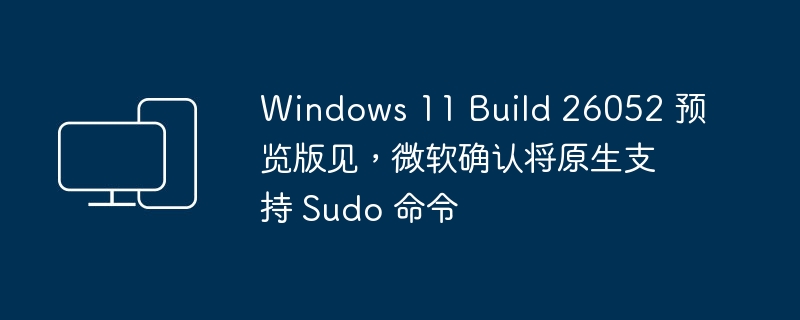

According to a deleted Microsoft support document, Microsoft plans to natively support the Sudo command in the Windows 11 Build 26052 preview update.
Sudo for Windows is described as an ergonomic and familiar solution that enables users to run certain commands with elevated privileges without having to open a new elevated console.
The Windows version of Sudo is in the early development stage. IT House previously reported that it has appeared in the Windows Server 2025 preview version.
In a since-deleted blog post, Microsoft noted that Sudo can be enabled from the Settings > For Developers page and toggled on the "Enable Sudo" option.
Users can also run certain commands with elevated privileges through the command line:
sudo config --enable
As IT House previously reported, the Windows version of Sudo currently supports three different configuration options:
Sudo for Windows In this configuration a new advanced console window opens and commands are run within it, which is the default sudo enabled setting.
For example, a user running sudo netstat -ab will open a new window in which the command will be run.
Under this setting, Sudo for Windows will run the elevated process in the current window, but close the stdinput of the new process. This means that the new process cannot receive user input and is therefore not suitable for situations where further input from the user is required.
This configuration is most similar to sudo behavior on other operating systems. In this configuration, Sudo for Windows will run an elevated process with stdinput, stdoutput, and stderror connected to the current window. This means that the new elevated process can receive input and send output to the current window.
Microsoft states that when using sudo to run a process from the command line, a UAC dialog box will appear asking the user to confirm the upgrade. You can also use sudo in the terminal, just like on Linux or macOS.
The above is the detailed content of See the preview version of Windows 11 Build 26052, Microsoft confirms that it will natively support the Sudo command. For more information, please follow other related articles on the PHP Chinese website!




